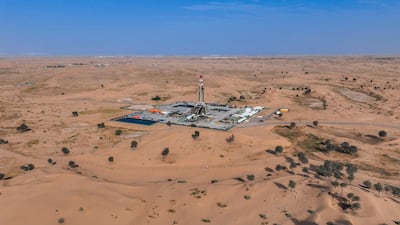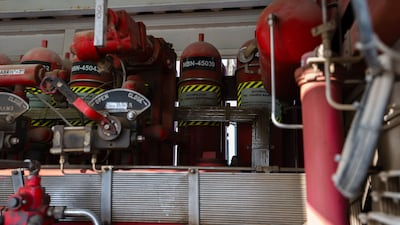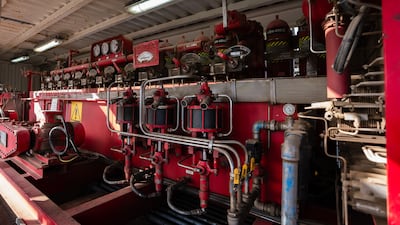Sheikh Dr Sultan bin Muhammad Al Qasimi, Ruler of Sharjah, approved the emirate's "largest -ever" budget for 2025, with expenditure of Dh42 billion ($11.43 billion) as it seeks to boost economic growth.
Spending is up 2 per cent compared to the 2024 budget, with salaries and wages accounting for 27 per cent and operating expenses for 23 per cent, state news agency Wam reported on Monday.
The allocation for capital projects "remains significant" at 20 per cent of the total, while the budget for loan repayments and interest has risen by 2 per cent annually to constitute 16 per cent. This reinforces "the government's capability and financial stability in fulfilling its obligations", the report said.
Spending for support and aid represents about 12 per cent of the general budget, with capital expenditure comprising about 2 per cent of the total.
In terms of sectors, infrastructure accounts for 41 per cent of the total budget, an increase of 7 per cent from the 2024 budget, aimed at attracting foreign and domestic investment across various vital sectors.
The economic development sector accounted for about 27 per cent, followed by the social development sector, at about 22 per cent. The government administration, security and safety sector constitutes about 10 per cent, up 8 per cent from the 2024 budget.










Meanwhile, in terms of revenue, the budget expects an 8 per cent increase in public revenue compared to this year's figures. Operating revenue will account for 74 per cent, while capital revenue is expected to represent 10 per cent of the total.
Tax revenue is set to contribute about 10 per cent of overall public revenue for 2025, marking a 15 per cent year-on-year rise. Customs revenue is expected to account for 4 per cent, with oil and gas revenue anticipated to make up about 2 per cent of the total.
"The government has placed a strong emphasis on boosting public revenues by enhancing collection efficiency and adopting advanced technical and smart tools," the report said.
Overall, the budget "aims to foster financial sustainability, uphold a decent standard of living and promote social welfare for all residents", it said.
It also aims to strengthen government agencies' capacity to fund their strategic initiatives and projects, ensure appropriate housing across Sharjah and enhance the tourism infrastructure.
The budget also includes "strategic priorities" to boost the emirate's economy through discounts and a review of various service fees to lower costs for customers and investors. It aims to boost job creation in the public and private sectors.
It further seeks to "bolster the government's capabilities in addressing the global and regional challenges that impact economies worldwide, such as inflation, rising interest rates, economic downturns and geopolitical tensions", the report said.
Sharjah's gross domestic product rose 6.5 per cent last year, reaching about Dh145.2 billion, driven by non-oil sector growth, which rose 7.1 per cent annually, Sharjah's Department of Statistics and Community Development said in May.
For the 2025 general budget, "multiple development tools and innovative financing techniques have been adopted to explore the best possible funding opportunities both internally and externally" to secure financial sustainability for the government, the Wam report said.
The government is also carrying out a digital transformation plan for financial services, including modernising electronic payment and collection methods.
These efforts "improve the capacity of government agencies to streamline operations and minimise red tape, ultimately paving the way for a significant improvement in the emirate's government financial system", it added.



